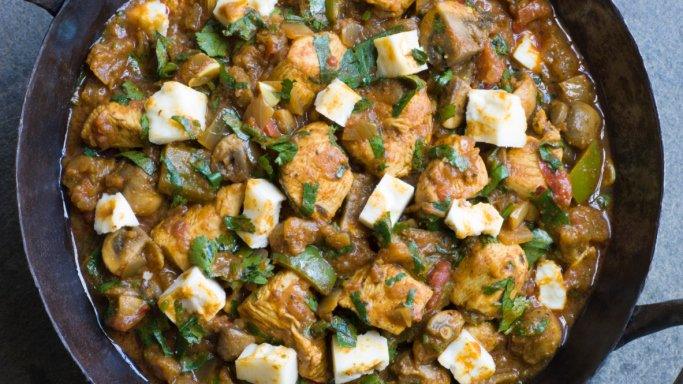The men and women who brought curry to Birmingham
- Published
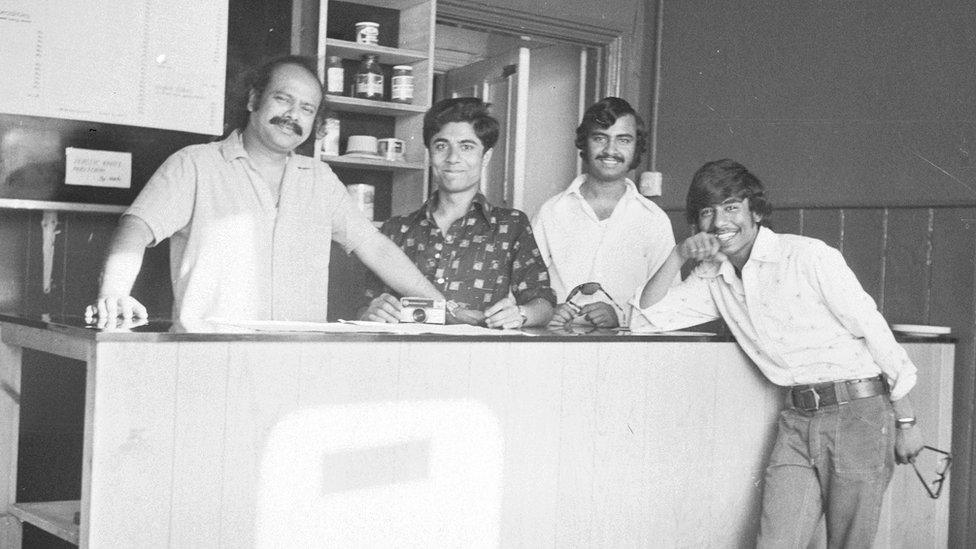
Bangladeshi migrants opened some of the first curry houses in Birmingham
Curry has become as much a staple of British cuisine as fish and chips or the roast dinner. An exhibition is celebrating some of the earliest curry houses in Birmingham, a city synonymous with the cuisine.
Birmingham has long-been considered the birthplace of the balti - a fusion dish popularised in the 1980s and 1990s by the city's Pakistani community.
But some 50 years before that, in the 1940s, it was settlers from Bangladesh, then East Pakistan, that introduced residents to their native dishes, by cooking milder versions of curry to suit British taste buds.
The Knights of the Raj exhibition tells the story behind Birmingham's burgeoning curry business and was curated by artist Mohammed Ali, external, whose father was in the restaurant trade.
He said he was in part inspired by his own "personal quest" to tell the stories of his father's generation.
"They deserve a voice and this exhibition will help immortalise their story," he added.

The 'first' Birmingham curry house
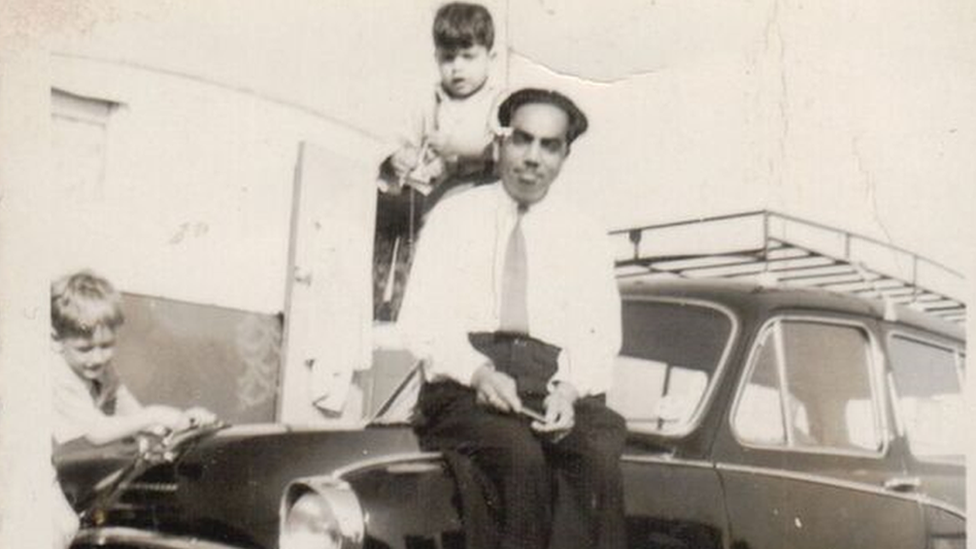
Abdul Aziz opened one of the city's first Indian restaurants
It was during World War Two that the man credited with opening the first fully-fledged Indian restaurant in Birmingham arrived in the city.
Abdul Aziz had been working as a labourer on a British Navy ship in about 1940. He jumped ship when it arrived at Newcastle-upon-Tyne and made his way to Birmingham, becoming one of the first Bangladeshi settlers in the city.
It was there he met Violet, an Irish waitress at a cafe in Coleshill Street, and it was she who became his "rock" after they married, teaching him English and the ways of British culture, said their son David Aziz.
The couple lived on Ladywood Road with Mr Aziz working in factories to save up enough money to buy and run John's Restaurant, on Steelhouse Lane, in 1945.
Within a decade, curry and rice had been introduced to the menu and the restaurant became known as The Darjeeling.
His son said: "A lot of my dad's friends were coppers from the Steelhouse Police station across the road.
"They were always in the restaurant in uniform. He also knew a lot of solicitors from the courts and doctors as they all used to eat in the restaurant."
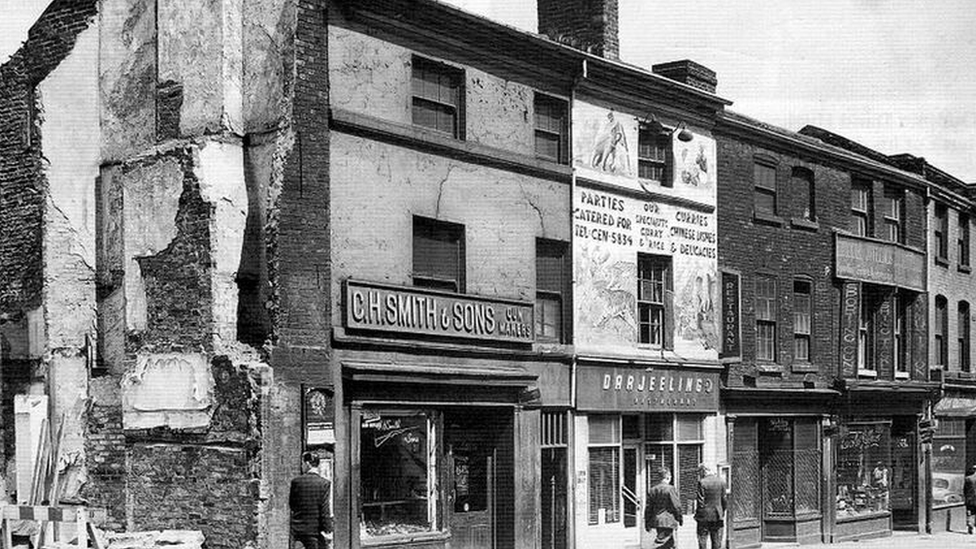
The Darjeeling Restaurant was well-attended by police officers and solicitors
The Darjeeling flourished from its humble beginnings and went on to play an important role in the growth of the curry trade in Birmingham, training later generations of the city's curry restaurateurs.
The businessman's kindness extended to other Bangladeshi migrants who he helped settle, giving them jobs as chefs and waiters and often housing them in rooms above the restaurant.
And as the profile of The Darjeeling grew, so did that of Mr Aziz.
He was often found front-of-house getting to know diners and he became friends with notable people in the community.
As a figurehead of the Bangladeshi community, he received invites to events at Birmingham Council House and featured in the local press - his success apparent by his sharp dress sense, his son added.
But away from the limelight, he was a family man at heart, ensuring he ate with his loved ones, no matter the hour.
"He used to come home from work or wherever and get us out of bed at three or four in the morning," Mr Aziz said.
"He would phone his chef to cook at the restaurant and he would bring the food to the house.
"We would have to sit on the floor and eat with him.
"There was a lot of love in the house."

'I would bring curry to them'
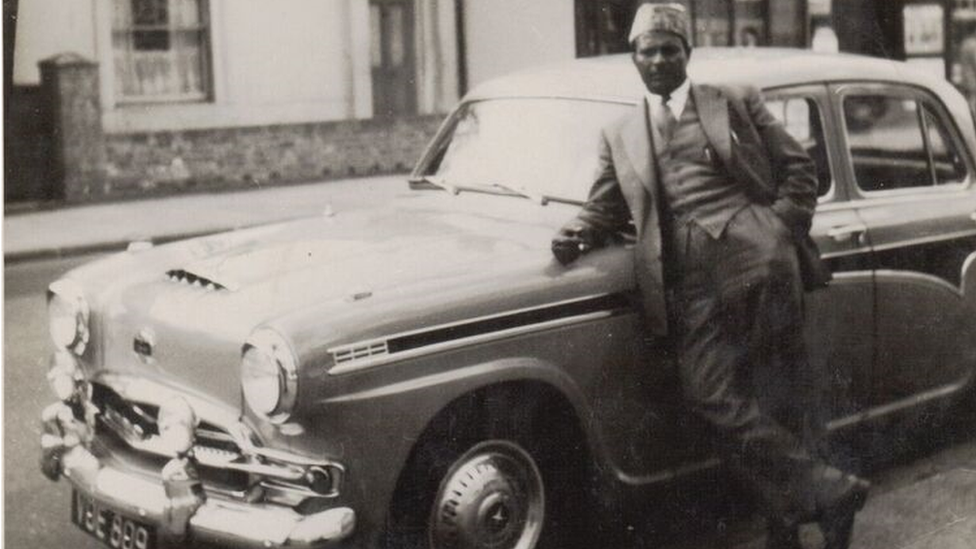
Mozamil Kazi was well respected in the community and known as a savvy businessman
It was a happy accident the Jinnah became what is believed to be the first in Birmingham to offer a curry takeaway and delivery service.
Mozamil and Rachel Kazi had been serving up the likes of steak, eggs and chips at Rae's Cafe in Bristol Street since the early 1950s.
But it was only later, when they put curry on the menu, that its popularity forced a move to a larger site in Moseley Road in 1957, which became the Jinnah.
Diners feasted on chicken, beef, prawn, lentil and potato curries, with legendary drummer John Bonham among the clientele before he joined Led Zeppelin.
But when regulars were unable to make it to the restaurant, son John came up with the novel idea of taking it directly to their door.
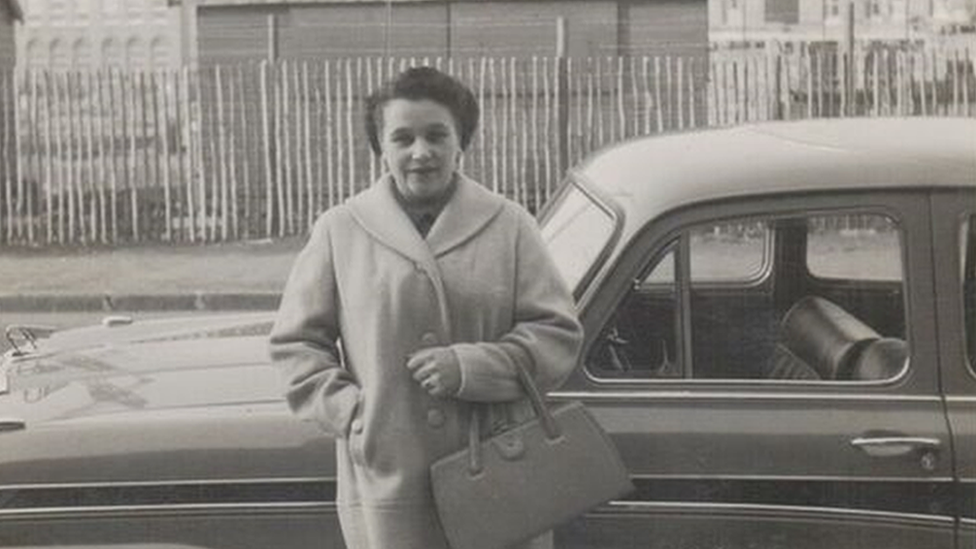
Rachel Kazi spent most of her time running the Jinnah
"Customers would say to me 'I can't make it to the restaurant' for whatever reason, so I said if they gave me a ring, I would bring a curry to them," he said.
"More and more people started to ask me to take curries to them. I started to spend more time delivering than I did at the restaurant."
The takeaway concept was such a hit people would take along their own pots to be filled with curry and rice for 25p.
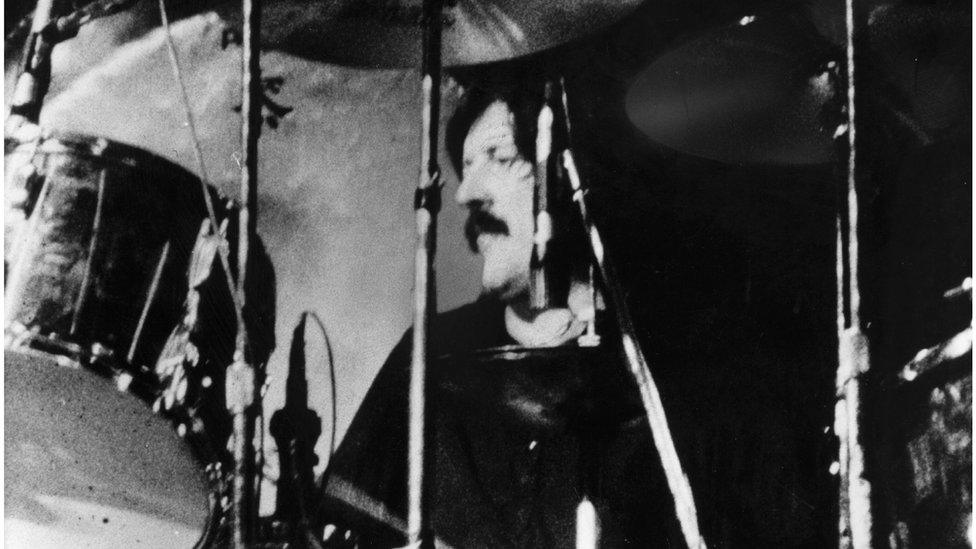
John Bonham used to visit the Jinnah when he was part of the band A Way of Life
Bangladeshi migrant Mr Kazi proved a savvy businessman, taking care of the finances. But it was Mrs Kazi who was the face of the business and ran its day-to day affairs.
"She was a bubbly character that everyone loved," said son Steve Kazi.
"She was a little Geordie lass but she ruled with an iron rod.
"There was one instance where a guy had already thrown me across the room but mum came along, got under his arm and punched him on his chin through the window."
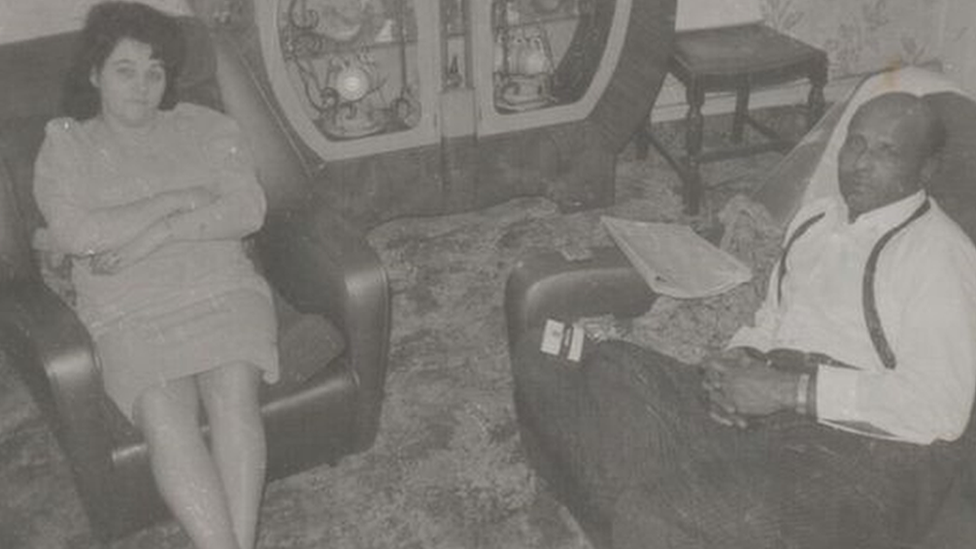
Rachel and Mozamil Kazi's Jinnah restaurant claims to have been the first to introduce takeaway and delivery to the curry trade

'We used to chase after them'
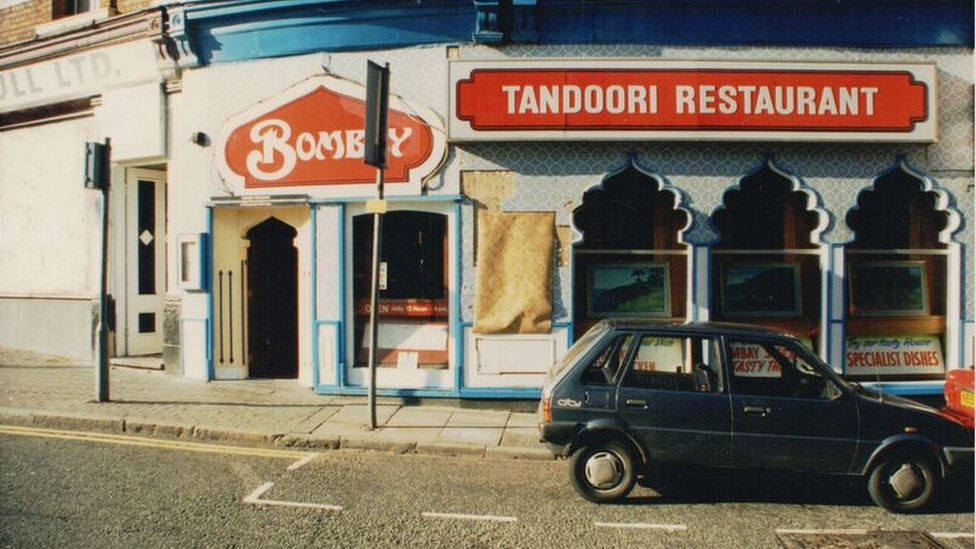
The Bombay received an Egon Ronay recommendation while Mr Khan worked there
Nurujuman Khan arrived at Heathrow airport from Bangladesh in the summer of 1957 and promptly followed in the footsteps of his cousin by moving to Birmingham.
Within a year, he managed to save enough money to go into the restaurant trade, co-owning restaurants in Wolverhampton and Worcester before selling his stake and moving back to the city.
During an 18-month spell at The Plough restaurant in Monkspath, Solihull, he was trained in silver service - a skill which would help him transform Birmingham's Bengali restaurant trade.
Mr Khan had become good friends with Abdul Samad, owner of the Bombay restaurant in Essex Street, and was offered a job as the restaurant manager.
He introduced a hot food trolley to serve customers from and invented new dishes with Mr Samad, including the chicken mossman - bhuna chicken topped with sliced egg.
The service helped attract people already accustomed to the exotic dishes as well as first-timers, though some needed gentle encouragement with their choices.
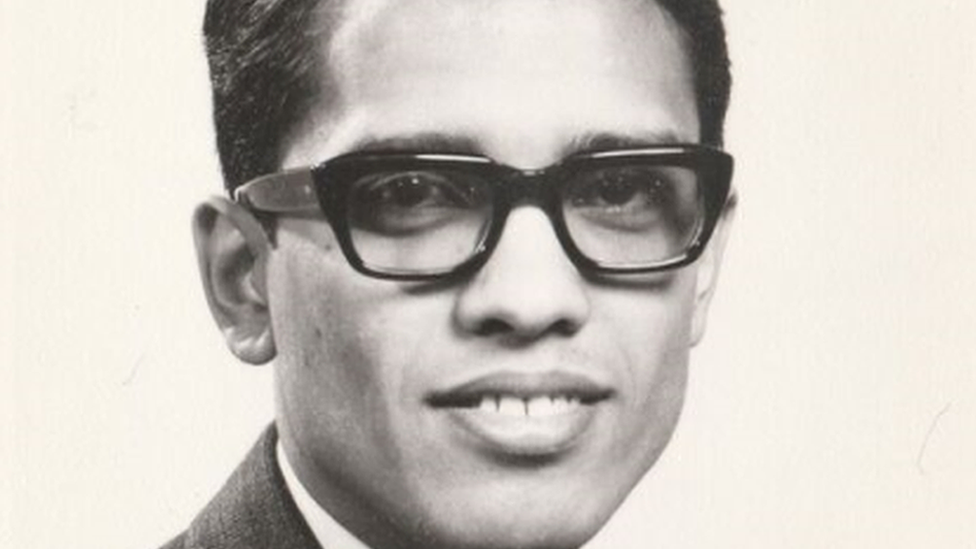
Nurujuman Khan took his silver service skills to the Bombay restaurant
"The majority of people that came to the restaurant were expats who had served in India, [so] they had a taste for Indian food," recalls Mr Khan.
"English people did not eat a lot of Indian food at the time. We would have to educate them [by] asking them to try this and that."
The restaurant was also occasionally blighted by people who would eat and run, known as "khasrah kastomar" - troublesome customer - by the staff.
"When you said khasrah kastomar, everyone would know to be on alert," remembered Mr Khan.
"We used to have to chase after them."
The Knights of the Raj exhibition runs at Birmingham Museum & Art Gallery until 14 January.
- Published21 November 2017
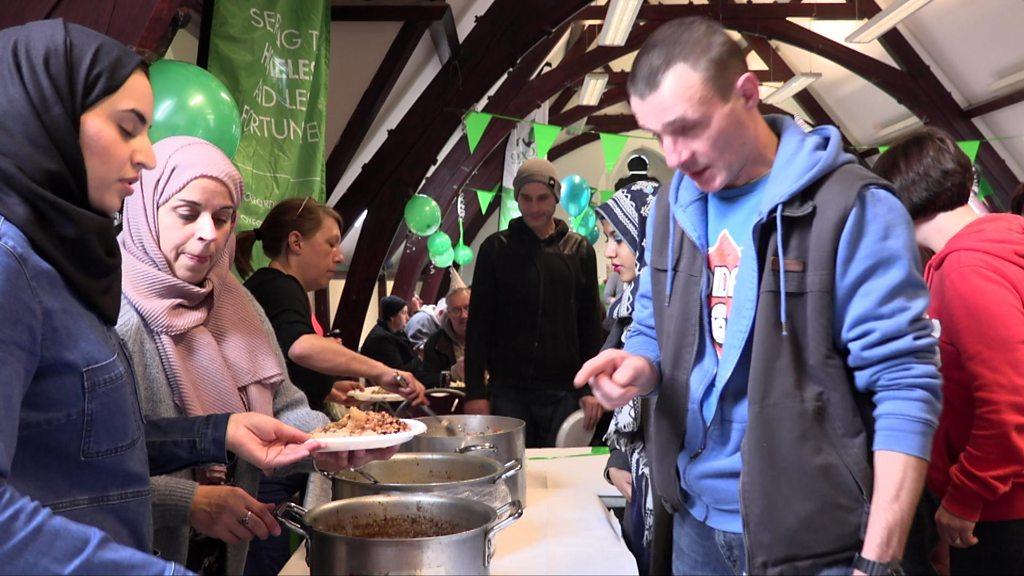
- Published17 January 2015
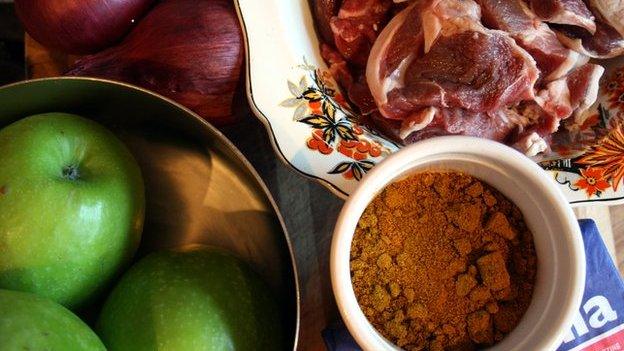
- Published19 June 2012
